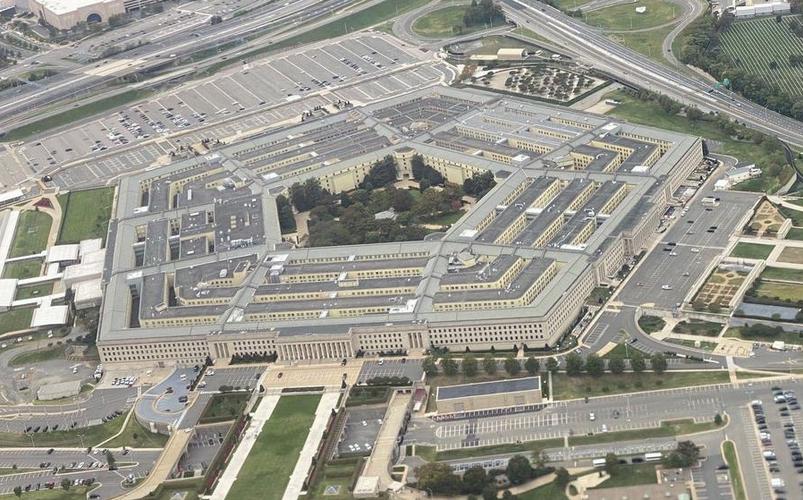
An important innovation advisory group at the Pentagon has recommended that the Department of Defense establish a new Deputy Secretary of Defense to lead international cooperation across the entire defense industrial base. The Defense Innovation Board has released a report stating that the Pentagon's international defense cooperation portfolio has been disjointed since 2018, when the department split its Procurement and Research and Engineering Office into two independent deputy secretaries.
Firstly, the report points out that currently the US Department of Defense does not have a central permanent mechanism for liaising with allies, partners, and international organizations, resulting in serious fragmentation, duplication, and lack of coordination among various workflows. The senior leaders of the Ministry of National Defense are exhausted from shouldering heavy responsibilities, while international defense industry cooperation is often put on hold due to competing priorities. The solution proposed by the committee is to appoint a new Deputy Secretary of Defense responsible for international integration and cooperation to lead the development and integration of requirements between the United States, its allies, and partners. The deputy minister will manage classification guidelines, oversee technical standards, and help ensure that communication networks and protocols are interoperable.
Secondly, with the support of the American Chamber of Commerce and the Aviation Industry Association, the Defense Memorandum of Understanding Commissioner Group proposed the establishment of a Deputy Secretary of Defense responsible for international cooperation. This position will enhance the coordination and efficiency of international military cooperation, and provide interoperable and interchangeable capabilities for US combat personnel at critical moments and in the future. Although this role was not mentioned in the discussions of the House Armed Services Committee, the Senior Military Committee of the US Department of Defense may be considering it. As the United States and its close allies and partners support Ukraine and Israel, while preparing for possible hostile actions, making the Department of Defense's international security cooperation work a priority is indeed an idea that the time has come.
In addition, through close collaboration with colleagues in the Pentagon's Office of Policy, Procurement and Research, and Engineering, the Deputy Secretary will ensure that the department's industrial base cooperation goals remain consistent. For example, the Defense Innovation Committee envisions that the new office will take over the International Defense Industrial Base investment portfolio from the Deputy Minister of Defense responsible for procurement and support. Similarly, the committee also proposed appointing a new deputy minister responsible for international scientific and technological cooperation, which would be led by the deputy minister of research and engineering.
Establishing new offices or restructuring existing organizations is a long-term approach to achieving government change. However, the effectiveness of these bureaucratic changes also depends on the nature of the organizational change and its alignment with the existing culture and structure of the organization. The cautionary story of the former Chief Executive Officer of the Department of Defense is worth learning from: the function was established by Congress at the deputy ministerial level to bring the best business practices to the Department of Defense. Despite the high qualifications of the position, it never played a role because the function did not conform to the culture of the Ministry of National Defense, and was ultimately cancelled in the 2021 fiscal year National Defense Authorization Act. The Deputy Minister responsible for international cooperation may also face a similar dilemma.
The US Defense Innovation Council believes that having a deputy minister with expertise in these areas will enhance this effort. The report states that this position is highly suitable for the current geopolitical and leadership environment. Although establishing a new bureaucratic system carries risks and challenges, it is necessary to centralize all bureaus, departments, and resources of the Office of the Secretary of Defense to focus on different aspects of international defense industry cooperation.
Overall, a better approach is to establish an Assistant Minister for International Cooperation at the lowest level of the defense bureaucracy. This will be similar to the approach taken by Congress when establishing the Assistant Secretary for Industrial Infrastructure Policy in the 2021 fiscal year National Defense Authorization Act. As with this role, an important outcome is that international defense cooperation will have a single point of contact at an appropriate level that can speak on behalf of the Department of Defense to Congress, allies, and partners, but designating it as ASD instead of USD will prevent the office from expanding too quickly and give it more opportunities to meet demand.

On October 28th local time, the Federal Reserve began a two-day interest rate meeting and is expected to announce the latest interest rate decision on the afternoon of October 29th.
On October 28th local time, the Federal Reserve began a two…
On October 28 local time, OpenAI's announcement of its orga…
Recently, according to Teslarati, Tesla has set "Brake Conf…
When engineers at the Warren City Technology Center in Mich…
This week, Israel accused the Hamas militant group of viola…
When Trump and Takaishi Saane held hands tightly at the Tok…